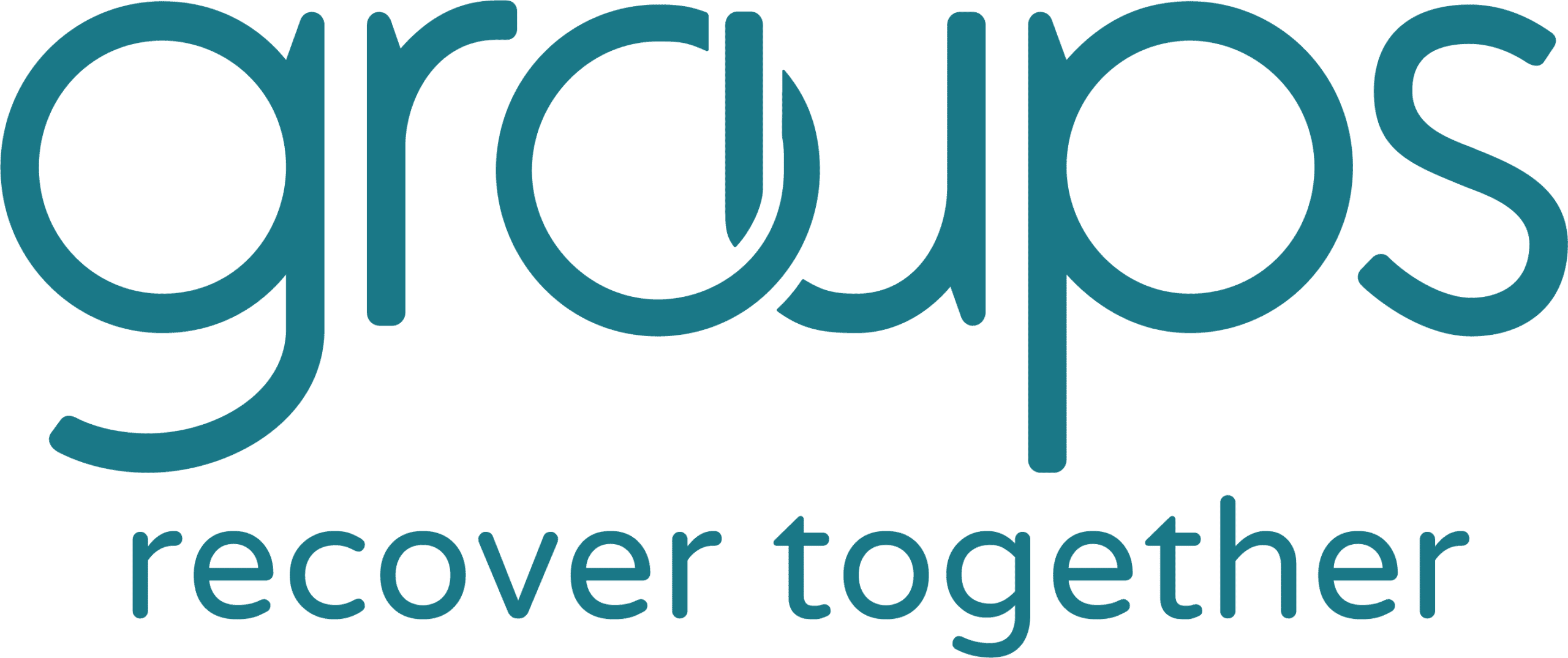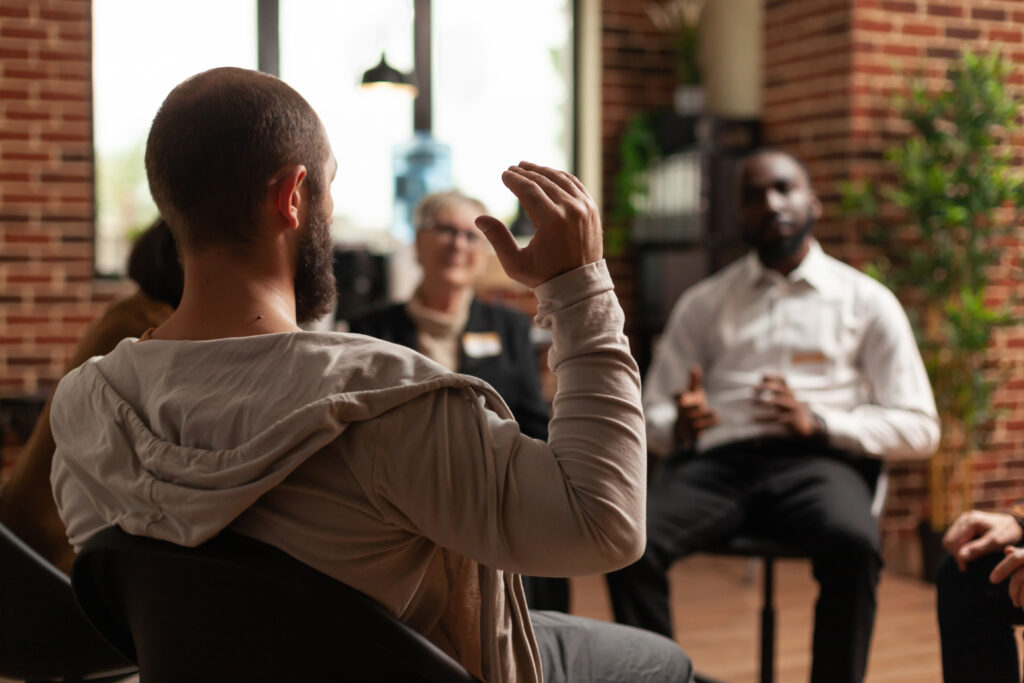Making the decision to stop using opioids is a big turning point in a person’s life. However, it’s only the first step in your recovery from opioid use disorder (OUD). Many people will use again at some point, which isn’t a sign of failure. Years of research have shown that using again is a part of the recovery process itself. These experiences can reveal insights about unmet needs and challenges you’re facing. Each time you come back to your life in recovery, you can make different choices. You can get to know yourself better and grow stronger.
One of the things we remind our members of often is that “recovery isn’t linear.” You’ll still have hard days even after you’ve made a lot of progress. That doesn’t mean your progress is invalid. It just means you’re going through a temporary setback.
In this blog post, we’ll talk about how to create a personalized opioid use prevention plan. We’ll also share nine strategies for you to consider.
How do I create a personalized opioid use prevention plan?
Each person has unique life circumstances and a unique relationship with opioid use. Reflecting on your patterns and triggers as well as your needs and your support system will help inform your prevention plan. Learning about how OUD works and common types of triggers is a good starting point. For instance, remembering the acronym HALT can help you notice when you’re most vulnerable to cravings — when you’re hungry, angry, lonely, or tired. During treatment, you’ll learn that using again is a multiphase process. Before you actually use, you’ll go through emotional and mental “stages of relapse.”
Different forms of treatment, from medication to support groups, are all parts of your plan. You should also outline your personal support system. Be sure to include contact information for people you can call when you need help. Learning about healthy coping skills and emotion regulation techniques is a big part of OUD treatment. It will take some experimentation to see what works for you and start building healthier habits. Journaling about the strategies you’ve tried can help shed some light on things to include in your prevention plan.
During the first stages of recovery, your opioid use prevention plan will grow and change. You might dedicate a notebook, a binder, or a digital document to this purpose. Return to it often and add new strategies as you go. You might include specific plans for situations that are likely to come up. It’s also good to have a collection of ideas you can look through when you’re not sure what to do.
9 opioid use prevention strategies for your recovery journey
A prevention plan isn’t just about responding to cravings, although that’s an important part of it. Making proactive prevention strategies a part of your routine will help you reduce cravings in the first place. Treatment, self-care practices, and exercise are all proactive elements you can add to your plan.
Clinical studies have shown that certain treatments and strategies are particularly effective for preventing opioid use. Taking medication for opioid use disorder (MOUD) is one of them. Education about OUD and relapse prevention is another. Cognitive behavioral therapy, mind-body relaxation, and trying out healthy coping skills are critical prevention strategies. Becoming a part of a supportive, recovery-oriented community helps individuals see themselves in a positive light and plays a big role in long-term recovery.
The following opioid use prevention strategies can be personalized for your relapse prevention plan:
- Identifying and managing triggers — Triggers are situations and experiences that make you want to use again. Each person has their own unique triggers. They can be emotional, environmental, or social. For some people, feeling stressed or having extra money in their bank account might be a trigger. Knowing what your triggers are and how to recognize them is a key part of preventing opioid use. You’ll also need personalized strategies to avoid and respond to triggers.
- Developing a comprehensive support system — Connecting with a recovery-oriented community ensures that you have supportive people around you who understand what you’re going through. Your counselors, peers, friends, and loved ones play important roles in your support system. Your peers will help you feel less alone in your recovery process. Licensed counselors can help you learn about OUD. They’ll help you understand your thoughts, feelings, and behaviors. Your friends and family can provide moral support. Take some time to identify who’s in your support system, how they can help you, and how you can reach them.
- Creating and maintaining a structured routine — Having routines during the early phases of recovery helps you create a new “normal” that doesn’t involve opioid use. Building healthy habits allows you to feel a sense of stability and control. It also helps you avoid unstructured time. Begin by planning how you’ll care for your basic needs like eating, sleeping, and going to work. Include steps like grocery shopping and meal preparation. Add in self-care activities you enjoy. These can include exercise, yoga, journaling, and specific relaxation activities. Make time to connect with your support system. When you have most of your schedule put together, pay attention to times when you’ll be most tempted to use. What can you do at those times to care for yourself?
- Practicing self-care and emotional regulation — Self-care includes any activities that help you care for your mental and physical health and your overall well-being. To feel your best, you need to build activities into your routine that help you manage these things proactively. While you’re recovering from OUD, self-care also helps you manage cravings and withdrawal symptoms. Your self-care might look like taking a meditation break during your work day or calling a friend on your way home after work. Some people enjoy a cup of herbal tea before bed.
- Medication for opioid use disorder (MOUD) — MOUD is one of the most effective ways to prevent cravings and withdrawal symptoms. Suboxone is part of our comprehensive treatment program for most members. At Groups, we believe the definition of recovery is up to each individual. MOUD is safe to take long-term, and for many people, it’s a necessary part of life in recovery. You should work closely with a qualified prescriber to determine which MOUD is best for you.
- Developing healthy coping mechanisms — There will always be stressful days. Unexpected challenges that come up. Finding healthy ways to cope not only helps you avoid using, but it also helps you live a life that aligns with your values. It may take some experimentation to figure out what works best for you. Exploring hobbies you enjoy, creative projects, and different types of exercise can open up some new possibilities.
- Continuous learning and personal growth — Building up a healthy sense of self-worth and liking who you are as a person are powerful forms of protection against opioid use. Learning about OUD is a great place to start. Therapy or counseling and support groups can help you stay engaged with your personal growth journey. You might work toward goals such as developing healthy relationships or healing from traumatic experiences. You can also work on becoming more confident in your skills and abilities.
- Monitoring and rewards — Urine screens are a part of treatment at Groups. They help us understand where you are in your recovery process. You don’t have to worry about being shamed or judged if you use again — it’s a natural, expected part of the recovery process. Urine screening can be a powerful form of accountability. Receiving rewards for negative screens helps people stay motivated in their early stages of recovery. In the context of a peer group, rewards also help provide a sense of recognition and pride.
- Peer support — The people who can understand you best are others who have been in recovery themselves or those who are going through it with you. Giving and receiving support with a peer group can help you feel like a valued member of a community. Peers can help you feel seen and cheer you on when you’re struggling. At some point, you may be able to pay it forward by encouraging someone else.
Get started on your opioid use prevention plan with help from Groups
Recovery from OUD is a journey you’ll be taking for the rest of your life. Certain days, weeks, and seasons will be more difficult than others. The good news is that you don’t have to go it alone. You can prepare yourself to navigate the challenges that lie ahead. Your prevention plan will be a resource you can return to whenever you feel like using. As you overcome new obstacles, you can keep adding new strategies.
Are you ready to start learning new opioid use prevention techniques and building your plan? Give our Recovery Support Specialists a call today. If you have other questions about the treatment process, please contact us.
We provide treatment across the country — and we’re always expanding. See if we offer care in your state, either online or at one of our 130+ local offices. If Groups doesn’t offer treatment in your area, you can locate other treatment options here.




